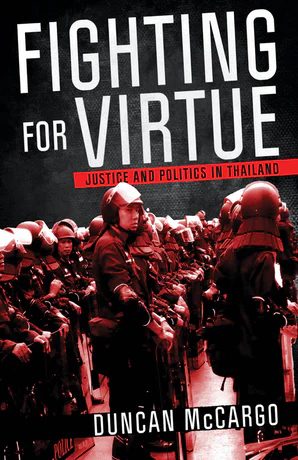Anyone who has taken any interest in the politics of Thailand at all in the last two decades could not help but have noticed the part that the country’s judiciary has played in them. Whereas before the 2000s the courts had at best a peripheral role in political life there, in recent years judges have at times weighed in dramatically on high-stakes conflicts. The causes and consequences of these judicial interventions are the subjects of a new book by Duncan McCargo, Fighting for Virtue: Justice and Politics in Thailand (Cornell University Press, 2019). McCargo sets as his task to explain who Thai judges are, how their minds work, and why they became so invested in politics from 2006 onwards. He critiques the courts in Thailand as suffering from what he calls hyperlegalism, while also offering sympathetic portraits of judges he met and observed at work. His abiding concern is with the relationship of the bench to the crown, and with how by taking a virtuous position in defence of the monarchy judges lost opportunities to contribute to a more progressive and just society.
Duncan McCargo has also recently published Future Forward: The Rise and Fall of a Thai Political Party (NIAS Press, 2020), with Anyarat Chattarakul.
Like this interview? If so you might also be interested in:
- Tyrell Haberkorn, In Plain Sight: Impunity and Human Rights in Thailand
- Samson Lim, Siam’s New Detectives: Visualizing Crime and Conspiracy in Modern Thailand
Nick Cheesman is a Fellow in the Department of Political & Social Change, Australian National University. He co-hosts the New Books in Southeast Asian Studies channel and hosts the New Books in Interpretive Political & Social Science series on the New Books Network.
 Facebook
Facebook  Twitter
Twitter  Soundcloud
Soundcloud  Youtube
Youtube  Rss
Rss 